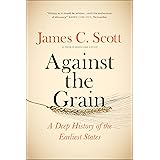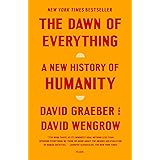
Enjoy fast, free delivery, exclusive deals, and award-winning movies & TV shows with Prime
Try Prime
and start saving today with fast, free delivery
Amazon Prime includes:
Fast, FREE Delivery is available to Prime members. To join, select "Try Amazon Prime and start saving today with Fast, FREE Delivery" below the Add to Cart button.
Amazon Prime members enjoy:- Cardmembers earn 5% Back at Amazon.com with a Prime Credit Card.
- Unlimited Free Two-Day Delivery
- Streaming of thousands of movies and TV shows with limited ads on Prime Video.
- A Kindle book to borrow for free each month - with no due dates
- Listen to over 2 million songs and hundreds of playlists
- Unlimited photo storage with anywhere access
Important: Your credit card will NOT be charged when you start your free trial or if you cancel during the trial period. If you're happy with Amazon Prime, do nothing. At the end of the free trial, your membership will automatically upgrade to a monthly membership.

Download the free Kindle app and start reading Kindle books instantly on your smartphone, tablet, or computer - no Kindle device required.
Read instantly on your browser with Kindle for Web.
Using your mobile phone camera - scan the code below and download the Kindle app.

OK
 Audible sample Sample
Audible sample Sample 


Seeing Like a State: How Certain Schemes to Improve the Human Condition Have Failed MP3 CD – MP3 Audio, May 22, 2018
Purchase options and add-ons
- LanguageEnglish
- PublisherBlackstone Audiobooks
- Publication dateMay 22, 2018
- ISBN-101538552876
- ISBN-13978-1538552872
The Amazon Book Review
Book recommendations, author interviews, editors' picks, and more. Read it now.
Similar items that may deliver to you quickly
Editorial Reviews
About the Author
James C. Scott is the Eugene Meyer Professor of Political Science and Anthropology at Yale University and current president of the Association of Asian Studies. He is the author of Weapons of the Weak: Everyday Forms of Peasant Resistance;Domination and the Arts of Resistance: Hidden Transcripts; and The Moral Economy of the Peasant: Rebellion and Subsistence in Southeast Asia, all published by Yale University Press.
Product details
- Publisher : Blackstone Audiobooks; Unabridged edition (May 22, 2018)
- Language : English
- ISBN-10 : 1538552876
- ISBN-13 : 978-1538552872
- Item Weight : 2.82 ounces
- Best Sellers Rank: #2,172,210 in Books (See Top 100 in Books)
- #9,026 in History & Theory of Politics
- #10,896 in Books on CD
- #13,099 in Public Affairs & Policy Politics Books
- Customer Reviews:
About the author

Discover more of the author’s books, see similar authors, read author blogs and more
Customer reviews
Customer Reviews, including Product Star Ratings help customers to learn more about the product and decide whether it is the right product for them.
To calculate the overall star rating and percentage breakdown by star, we don’t use a simple average. Instead, our system considers things like how recent a review is and if the reviewer bought the item on Amazon. It also analyzed reviews to verify trustworthiness.
Learn more how customers reviews work on Amazon-
Top reviews
Top reviews from the United States
There was a problem filtering reviews right now. Please try again later.
Although Scott is focused specifically on high modernist ideology and its uses in the 20th century, there are several themes in this book that directly connect to our readings from previous weeks. Scott frequently talks about the belief in high modernism as if it were a faith. As with the Calvinists and the French Revolutionaries, these men and women believed that there was a problem (backwardness) that needed to be fixed and they held the solution to that problem (modernization). As with our discussion of French modernization, Scott highlights the importance of homogenization. However, Scott goes beyond cultural and linguistic homogenization as ways to exert political and financial control. He also emphasizes how the high modernist preoccupation with homogenization was manifest in agricultural practices, with polycropping being considered backwards and large monocropped farms being seen as the future of agriculture.
One of the strongest parts of Scott’s work is his emphasis on diversity. Scott takes great effort to explain the myopic view of high modernism and how such intense focus on certain aspects of any subject to the exclusion of other parts of the larger picture had such a detrimental impact on the success of high modernist projects. He successfully argues that high modernist plans for city building, collectivation and villagization failed to consider the impact of humans, who were likely to resist change, adapt the new rules to meet their own personal needs and publicly rebel against forced control. Scott uses Jane Jacob’s critique of planned cities as a basis for much of his criticism, citing her thesis that a diverse city where streets filled a variety of purposes was a healthier community.
One of the things that struck me as quiet odd about Scott’s work was his emphasis on gender in the critique of high modernism. He takes great care in emphasizing how important he thinks Jacob’s “woman’s eye” is to her frame of reference and ability to critique high modernist city planning. (p. 138) He also chooses women critics of Lenin and Bolshevism (Rosa Luxemburg and Aleksandra Kolontay). I think that the arguments put forth by these women are strong critiques of high modernist ideology and that Scott makes excellent use of these arguments throughout his book. However, I am skeptical of how he chooses to present these arguments. While I admit that I am no expert in high modernism or gender studies, I find it hard to believe that there were no men who were critical of high modernism, or for that matter, no women who espoused firm high modernist beliefs.
I think that Scott’s work also does an excellent job of highlighting the fact that despite the horrific outcomes of many of these plans, the goal of modernization was not to starve millions of people to death. These men and women were acting based on a system of beliefs they thought held the answer to solving the world’s problems. It is also easy to take the logic of high modernism, with its emphasis on legibility and homogenization, and see the connections to a global system that emphasized cultural homogenization and espoused forced migration and deportation, eventually leading to genocide.
The first section of the book is a well-researched look at how it suits the purposes of centralized governments to make the citizenry more "legible" - speaking the same language, living sedentary lifestyles in villages, using the same currency and measurement systems. Legibility yields a population that is no longer independent.
The book then goes on to show how a citizenry that is wholly legible becomes dependent on the state and is quickly beggared by an insatiable government. Using the examples of Stalin's collectivization, African ujamaa socialist villagization, US Indian policy, and experimental farming, Scott makes his point again and again.
His comparison is with "high modernist" architecture and city planning, which yields depressing, failed, unlivable places relying on unplanned slums and black market operators for any economic activity. High modernism, with its faith in experts, fails. It "looks" modern, and for faith-based modernizers, looks are enough.
Reality is messy. Human relations in an econmy are messy. They are governed by individuality, local knowledge, and obscure customs that "look" primitive but are time-tested, experimentally-driven winning solutions. Individuals must rely on their initiative, wisdom, prudence, and responsiveness to make a living. "High modernist" solutions wipe that clean and try to substitute reliance on government plans constructed from afar, based on aesthetics, not reality.
High modernism does not foster responsible decision-making, social independence, reasonable negotiation traits, or local competence in the citizenry. It serves only to quell dissent (often by force)in the local communities. The parallels with Obamacare are striking and ominous.
The most interesting conceit in the book is that the leftist naysayers Scott likes to cite are women - Jacobs, Luxembourg - who have special insights and intuitions into the problems of top-down socialist planning. A women's intuition sort of thing?
I have ordered two of his books on resistance:
"Weapons of the Weak" Weapons of the Weak: Everyday Forms of Peasant Resistance
"Domination and the Arts of Resistance" Domination and the Arts of Resistance: Hidden Transcripts
For more on this topic, read "Why Governments Fail So Often" Why Government Fails So Often: And How It Can Do Better











